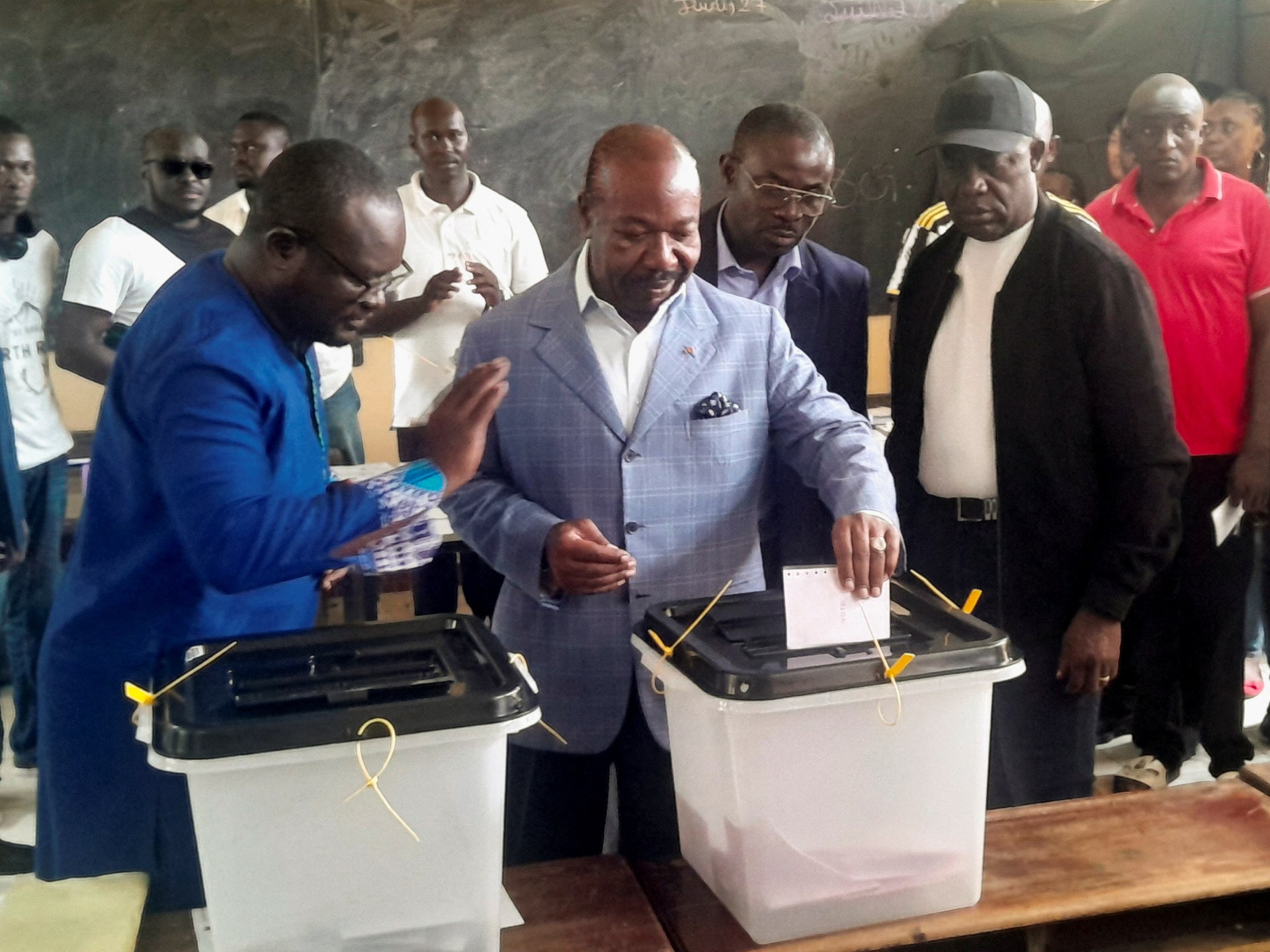A group of senior military officers has gone on national television in Gabon saying they have seized power because elections held over the weekend were not credible.
The officers, appearing on Gabon 24 in the early hours of Wednesday morning, said they had cancelled the elections, dissolved all state institutions and closed the country’s borders.
They said they represented all security and defence forces of Gabon.
The announcement came shortly after the state election body said President Ali Bongo Ondimba had won a third term in office in Saturday’s disputed elections.
“In the name of the Gabonese people … we have decided to defend the peace by putting an end to the current regime,” the officers said.
The Gabonese Election Centre said Bongo had secured 64.27 percent of the vote compared with 30.77 percent for his main challenger Albert Ondo Ossa, after a process beset by delays.
Al Jazeera’s Catherine Soi, reporting from Kenya, said that “there are lots of uncertainties” surrounding the military action.
“There is a lot of tension as well. They [military leaders] are claiming that the government has not been respecting the will of the Gabonese people for so many years and they say that has to change,” said Soi.
On Saturday, the opposition camp said the election was a “fraud orchestrated by Ali Bongo and his supporters” after the internet was cut and a curfew imposed. French media outlets France 24, RFI and TV5 Monde were also banned, accused of “a lack of objectivity and balance … in connection with the current general elections”, the government said.
“We also know that the internet is still shut down. It was shut down over the weekend and curfew was imposed,” Soi said. “So, people are very afraid.”
“It is very hard for people in Gabon to access the information that they need to know what is happening,” she added.
Bongo was the candidate for the Gabonese Democratic Party (PDG), the party founded by his father, Omar Bongo, who led Gabon from 1967 to 2009. After his death, his son, then the defence minister, took his place as president and has been in power ever since.
“We have no idea where President Bongo is. The military did not say where the president is. Things are moving very fast,” reported Soi.
Tensions had been running high amid Saturday’s vote with the opposition pushing for change and an end to the Bongo family’s dominance of Gabon.



https://www.rollingstone.com/politics/politics-features/west-africa-coup-american-trained-soldier-1234657139/
I’m assuming the US training includes instruction on how to pull off a coup, and now they’re using those skills for their own / Russia’s benefit.
Okay, now your point sounds more reasonable. There are plenty of people who think that the US is controlling everything everywhere and that isn’t the case (too incompetent for that as we did see in Vietnam, Iraq and Afghanistan). That said, there is a gap between controls something completely and had actors involved in something. That is why I question you. Thanks for the rolling stone link.
The Flintlock exercises do take place yearly in the region since 2005, a few thousand military professionals, often from higher ranks and special operation units partake in them. 30 out of up to 54-ish African countries partake in them. This means that up to 30k people did partake in it in the last 20 years. That is not a low number.
Since coups only happen - in lieu of a civil war / clandestine organization - from within the military / state security forces this means that naturally people who coup will have partook in those exercises (no matter their content). As the people doing the coups will be close to bases of power, have high rank or be part of special units. This is true no matter what content the exercises do have.
It also helps to know how the US teaches and how other countries react as this enables you to know how the counter-coup will be done. During those exercises you do talk about counter insurgency and how to shield vulnerable centers, which of course is helpful in couping, too. Most of the content is pretty basic though and not that deep.
US exercises do regularly (see also Jakarta method) lead to human rights violations by military personnel taught: https://en.wikipedia.org/wiki/Joint_Combined_Exchange_Training#Controversy Your article also mentions some.
Though I want to underline that there is a difference between torture schools, like the School of Americas in the USA and its successors and similar institutions which are only teaching torture and military exercises which are much more short term, less deep and have another focus.